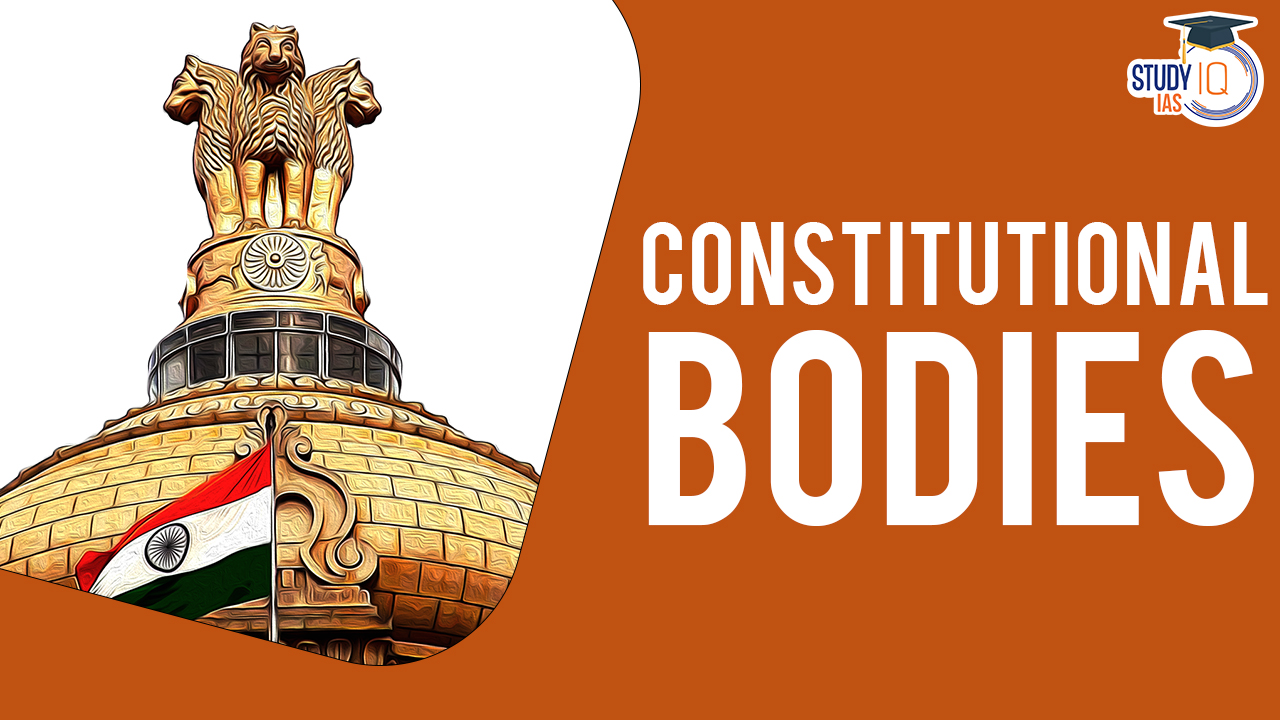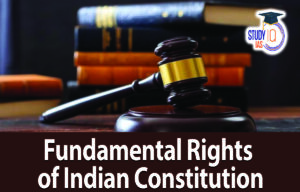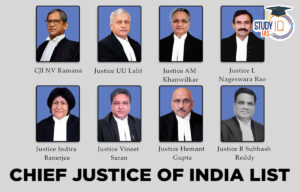Table of Contents
Constitutional Bodies of India
Constitutional Bodies: A Constitutional body is established by the Constitution of India and can only be created or changed through a Constitutional Amendment, not by regular or private bills. These bodies derive their powers from the Indian Constitution and are seen as more prestigious and powerful than other organizations. Any changes to their functions or powers require a Constitutional amendment. In India, Constitutional bodies have permanent or semi-permanent roles in government and are responsible for executive functions. The President of India has the authority to make appointments to these bodies, but this power is exercised based on proposals from the Cabinet, which decides who is appointed and to what positions. These decisions are usually discussed with the Prime Minister before finalizing. Overall, Constitutional bodies are essential for helping the government operate effectively and efficiently.
| List of Constitutional bodies |
|
List of Constitutional Bodies of India
Constitutional Bodies derive their authority from the Indian Constitution; as a result, any changes or expansions of these organisations authority require a constitutional amendment. The Constitutional Bodies that are covered in this article are included in the UPSC Indian Polity and Governance Syllabus.
|
List of Constitutional Bodies of India |
||||
| Constitutional Bodies | Articles | Term | Removal | Powers of Constitutional Bodies |
| Attorney General of India | 76 | Not fixed by the Constitution | Holds office during the pleasure of the President |
|
| Comptroller and Auditor General of India | 148 – 151 | For a period of six years or 65 years (whichever comes earlier) | Is similar to that of a Supreme Court judge |
|
| Election Commission of India | 324 | Currently, for 6 years or until 65 years old, whichever comes first | In the same manner and on the same grounds as the judge of the Supreme Court. |
|
| Finance Commission of India | 280-281 | as specified by the President | done by the President |
· Shares of tax distribution between center and state government
|
| NCSC – National Commission for Scheduled Castes | A-338 | Is appointed by the President of India for a period of 3 Years. | Presidents determines his removal |
|
| NCST – National Commission for Scheduled Tribes | 338 A | 3 Years, appointment by the President | done by the President |
|
| National Commission for Backward Classes | 338 B | determined by the president | 3 Years |
|
| Special Officer for Linguistic Minorities | Article – 350 B | Tenure on the Pleasure of the president | Removed on the Pleasure of the President |
|
| Union Public Service Commission | 315-323 | For the time being, 6 years or 65 years (whichever is earlier) | done by the President |
|
| State Public Service Commission | 315-323 | presently for 6 years or 62 years, whichever is earlier | Is done by the President |
|
Conclusion
Constitutional Bodies in India are essential for maintaining the principles of the Constitution and ensuring democracy works smoothly. They oversee elections and promote transparency and accountability, taking on important responsibilities for the nation’s governance and welfare. As protectors of democracy, these bodies work towards justice, equality, and integrity, strengthening India’s democratic foundation.
Constitutional Bodies UPSC
The state needs a number of authorities to manage diverse governmental activities. As a result, the constitution of the state stipulates the creation of a few key authorities, as well as the roles, responsibilities, and powers of those authorities, as well as the credentials necessary for leaders and officials. We refer to them as constitutional bodies.
- Organisations whose creation is required by the Indian Constitution are known as constitutional bodies.
- The Indian Constitution serves as the foundation for their authority.
- A constitutional amendment is usually required to alter the power or duties of such bodies.


 Fundamental Rights of Indian Constitutio...
Fundamental Rights of Indian Constitutio...
 Waqf Act (Amendment) 2025: Key Highlight...
Waqf Act (Amendment) 2025: Key Highlight...
 Justice BR Gavai will take oath as 52nd ...
Justice BR Gavai will take oath as 52nd ...






















